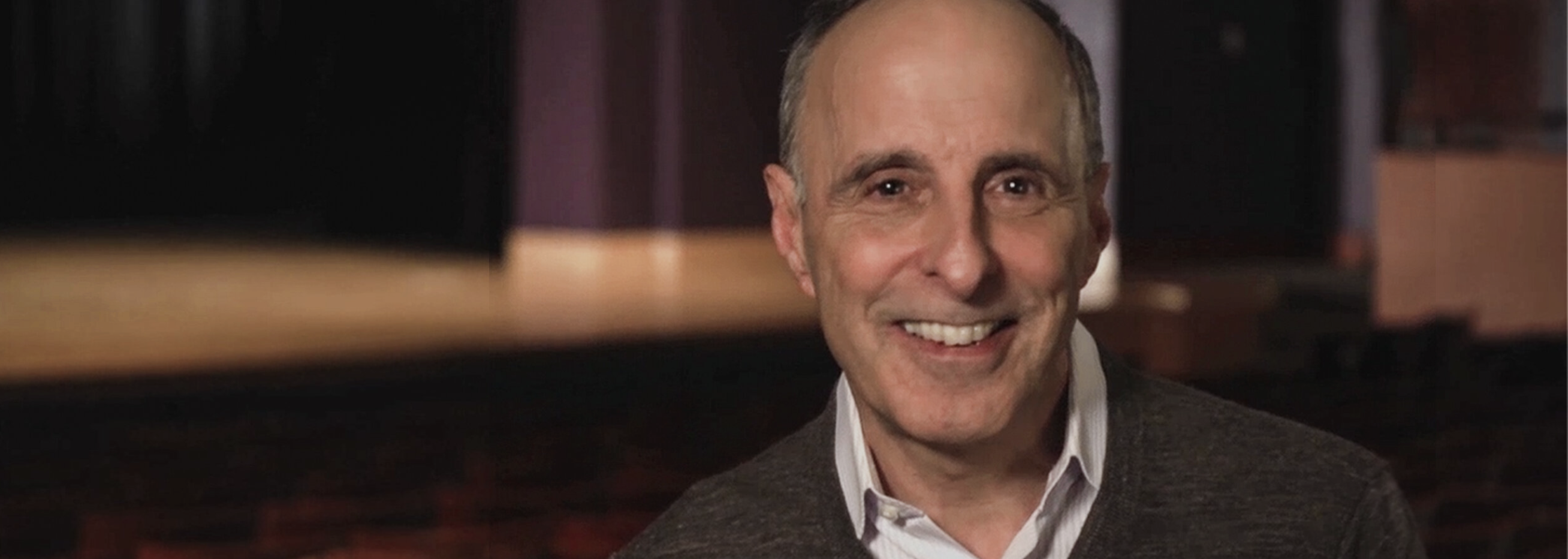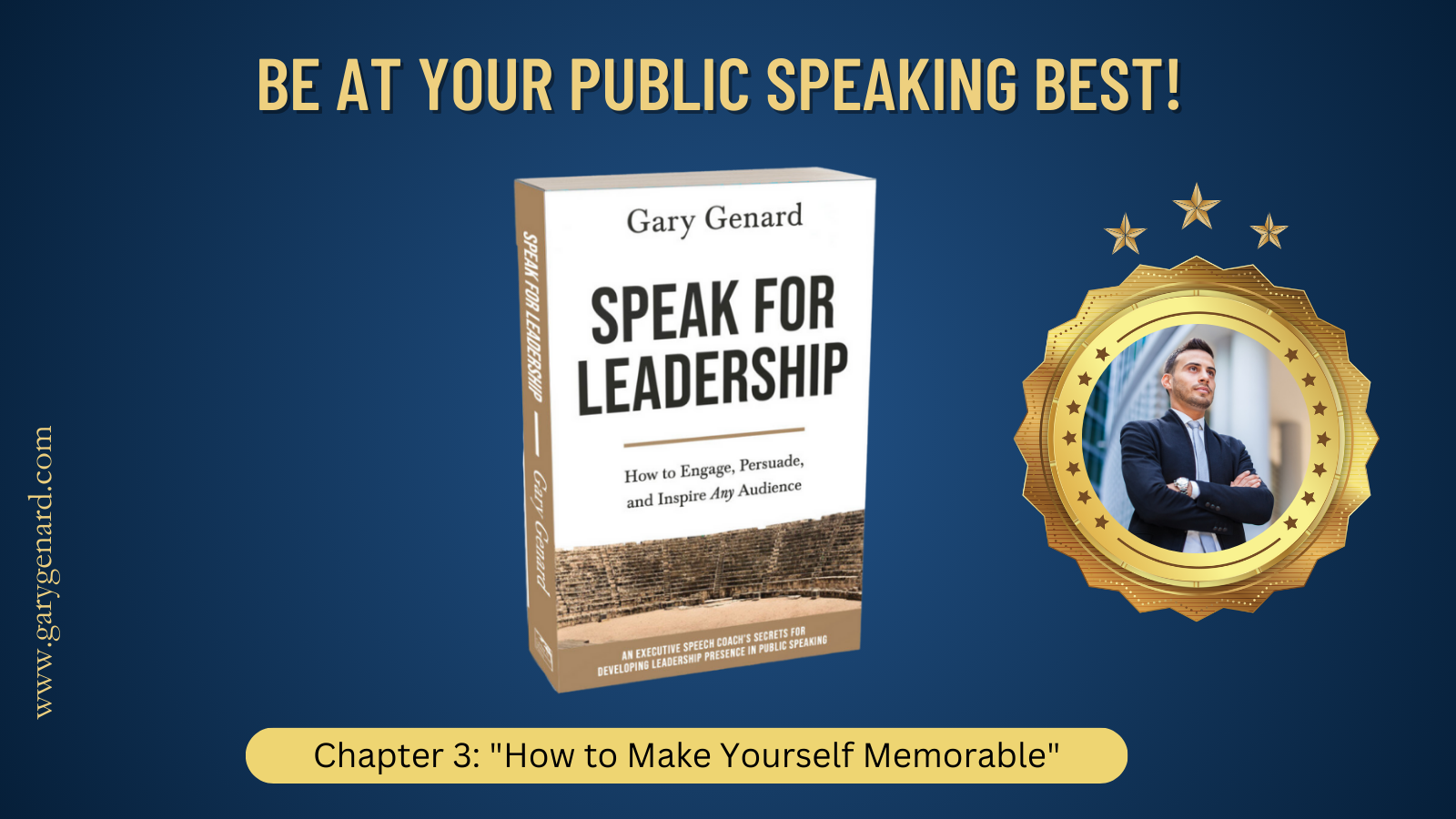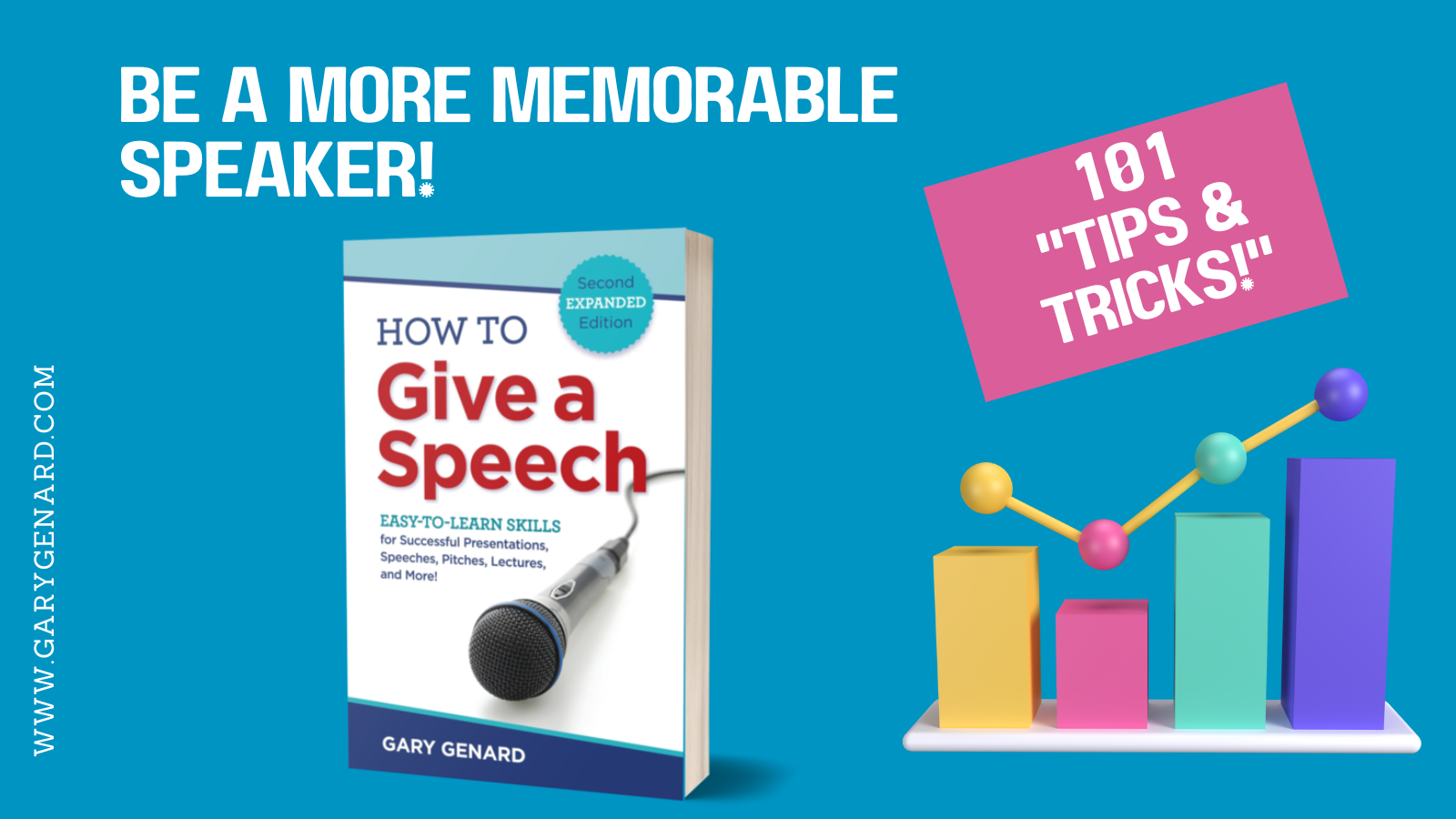How good are you at persuading people and gaining their confidence? Here are 5 ways to be a credible speaker who wins over audiences.
credibility
n. The quality of something capable of being believed or relied upon or that is worthy of confidence. See also veracity. (Webster's New World College Dictionary)
How credible a speaker are you? Do you, in fact, ever think about that aspect of the speeches, presentations, and remarks you deliver?
You sure need to be! Nothing beats credibility for turning an audience on to what you're about to say, except perhaps honesty. And in terms of persuading listeners, the two are nearly inseparable.
Credibility is a must if you want to influence people when you speak. Achieve your personal best with my book, Speak for Leadership. Find it here on Amazon.
The interesting thing about credibility, is that it has to exist in the audience's mind, not your own. It's a speaking quality, then, that can only be created by the right kind of focus. By that, I mean the kind that emanates from a speaker who is more interested in the audience's needs than his or her own.
So how can you get this magic speaking quality working for you rather than against you? Below are 5 ways to make that happen. Put them into practice, so that you can convince listeners and get them on your side every time you speak in public.
Learn how to establish credibility within the first 60 seconds! Download my free cheat sheet, "4 Characteristics of an Influential Speaker."
5 Ways to Win Credibility with Your Audience
1. Tell us your full name and title. Some speakers have "perceived credibility." That is, before they even show up, they are a known quantity concerning their topic. If your name is Bill Gates or Meryl Streep, for instance, we'll automatically listen to you when it comes to software or acting. The rest of us need to alert listeners that we own some expertise to speak on a subject.
Doing so starts at the very beginning of your talk (and continues with #3 below). As audience members, we need the full deal. "Hi, I'm Liz," is a distant second in terms of building confidence in an audience compared with: "Good morning. I'm Elizabeth Williams, VP of Member Outreach at Irresistible Products."
Speak on, Elizabeth! From my place in the audience, I'm beginning to think you know something about member relations.
Do you literally speak with the voice of leadership? You need to compel attention, trust, and respect! Get my Free guide, "The Voice of Authority: How to Sound Like a Leader."
2. Tell the audience why your talk matters to them. Have you ever listened to a sales rep go on about his company's "key differentiators," "turnkey solutions," and the market share they own? Really, who cares?
I once trained 45 sales reps for a SAS company, every one of whom used the same PowerPoint deck that discussed the company's "uniqueness". Would you care to hear that at as audience member—or would you be waiting to hear how they can help solve your pain points?
Audiences are always strongly in a "What's in it for me"? mode. As speakers, we can become so wrapped up in our content that we don't present our material as an opportunity to meet those needs. After all, it's called "giving" a speech! The earlier you make that apparent, the sooner listeners will see you as someone who's speaking for their benefit. That's a realization that confers instant credibility.
Want more on great techniques for speaking in business? How about 101 of the best 'tips & tricks' there are? You'll find them in my book, How to Give a Speech. On Amazon.
3. Establish your credentials. Your bona fides are legitimate and necessary adjuncts to your concern for your listeners. If you've been a structural engineer for 30 years, the audience needs to hear that before you discuss the changes that will take place along this highway corridor. If you don't hold a Ph.D. in Apiology as you give your talk at the local library, tell your audience that the study of honey bees has been a hobby of yours since you were 15. That credential may be equally valuable in their minds.
Note, incidentally, that this item is third in the list, not second. Mentioning your credentials directly after your name and title can seem arrogant. And anyway, it's better to get right to telling the audience how they can benefit from what you're about to say.
How good are you at this kind of clarity and conciseness, two attributes to being credible? Download my Free resource, "How to Be a Clear, Concise, and Compelling Speaker."
4. Live in your audience's world. You've already mentioned to listeners why what you're talking about matters to them. Now, demonstrate it in every aspect of your talk. What I mean by that is: at every opportunity, relate what you say to the audience's experiences. It's far too easy to climb into the cocoon of your knowledge instead, never coming come out again!
One of my longstanding clients at The Genard Method is a scientist who probably gives 50 speeches a year. In one of our coaching sessions, I learned that an upcoming talk would be to a group of IT professionals. So I asked him, "Why can you say, right after you introduce yourself, that will interest them in your topic . . . how can you present it in terms of their needs?"
Another essential way you can live in your audience's world is to remind them that you know they're there. Say things like this: "Isn't this something that you see in your industry?" "You can relate to this, can't you?" and "What do you think . . . does that explanation make sense?" I call it touching your audience.
5. Give some evidence! Remember that your most important task as a speaker is to engage and influence your audience, not deliver information. The information you're delivering will take care of itself. Develop your ear so that you can hear when you've been speaking too theoretically or in generalities. Even discussing your vision without end can be too much of a good thing.
People need examples, illustrations, and stories to put the gorgeous gem you've created for them in their pocket and take it home. Notice that in this article, the examples and stories I've used include: Bill Gates and Meryl Streep, the 45 PowerPoint presentations from the sales reps, the structural engineer discussing changes in a highway corridor, the amateur beekeeper speaking at the local library, and my frequent speaker client and his audience of IT professionals.
When you bring stories like this (and they can be that brief!) into your talks, your audience will see you as more human and interesting. That means you'll be all the more credible in their minds.
This article was originally published in 2014. It is updated here.
You should follow me on Twitter here.

Gary Genard is an actor, author, and expert in public speaking and overcoming speaking fear. His company, The Genard Method offers live 1:1 Zoom executive coaching and corporate group training worldwide. In 2022 for the ninth consecutive year, Gary has been ranked by Global Gurus as One of the World’s Top 30 Communication Professionals. He is the author of the Amazon Best-Seller How to Give a Speech. His second book, Fearless Speaking, was named in 2019 as "One of the 100 Best Confidence Books of All Time." His handbook for presenting in videoconferences, Speaking Virtually offers strategies and tools for developing virtual presence in online meetings. His latest book is Speak for Leadership: An Executive Speech Coach's Secrets for Developing Leadership Presence. Contact Gary here.





